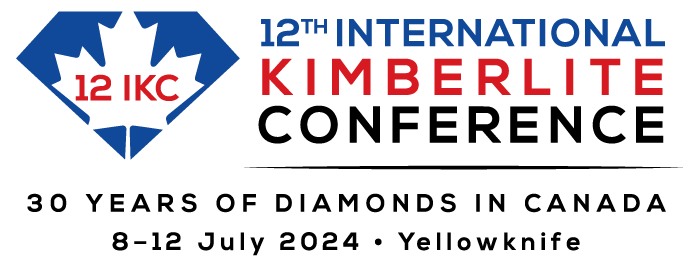SEMINARS
The 12th International Kimberlite Conference (12 IKC) comes at a time when high-quality petrologic, geochemical and isotopic data pertaining to kimberlites, diamonds and the Earth’s upper mantle are being generated, compiled, and released into the public domain at an astonishing rate. To help make sense of this tidal wave of new data and related geoscientific models, the 12 IKC is convening two Seminars to address emergent topics related to (i) kimberlitic olivine and (ii) large Type-II diamonds.
A Seminar is an educational event in which a group of people gather together to learn more about a certain topic or subject. Seminars usually involve presentations, discussions and interactive activities that help attendees to become more knowledgeable. Each of the 12 IKC Seminars will consist of a state-of-science primary lecture, two additional supporting lectures and ample semi-moderated question-and-answer periods.
Kimberlitic olivine: tracking mantle cargo and kimberlite melt evolution
Monday 8 July 2024, 13:15 to 16:15
Primary Lecture: Dr. Geoffrey Howarth, University of Cape Town, South Africa
Title: Kimberlitic Olivine: Recent research directions, current implications, and the path forward
Supporting Lecture: Dr. Federico Casetta, University of Vienna, Austria
Title: Olivine-hosted mineral inclusions in kimberlites: insights on the liquid line of descent and T-fO2 path
Supporting Lecture: Dr. Adam Abersteiner, University of Adelaide, Australia
Title: Discovery and interpretation of melt inclusions in kimberlitic olivine – Implications for primitive/parental kimberlite melt compositions
Expect to hear about:
- Why has research (and publications) on kimberlitic olivine become so popular?
- Why has a revised descriptive (zonal) terminology emerged for kimberlitic olivine, and what purpose(s) does it serve?
- Overview of current research methods, analytical techniques and pitfalls related to the rejuvenated understanding of kimberlitic olivine
- Practical tips on use of the Al-in-olivine thermometer
- Mantle sampling as exemplified by (xenocryst) olivine, garnet and cpx entrainment patterns
- Correlations between olivine core and rim compositions, with implications of mantle entrainment on kimberlite melt compositions
- Discovery and interpretation of (former) melt inclusion(s) in kimberlitic olivine, with comparison to experimental and reconstructed primitive/parental kimberlite melt compositions
- The Udachnaya-East liquid line-of-descent: key learnings and surprises
- Chromite and other inclusions in kimberlitic olivine
- The T-ƒO2 path of kimberlite melts
Large Irregular Type II diamonds: genesis and transport to surface
Wednesday 10 July 2024, 14:15 to 17:15
Primary Lecture: Dr. Evan Smith, Gemological Institute of America
Title: The deep mantle genesis of CLIPPIR and Type IIb diamonds
Supporting Lecture: Prof. Suzette Timmerman, University of Bern, Switzerland
Title: Sublithospheric diamonds and where to find them
Supporting Lecture: Dr. Ingrid Chinn, De Beers Group, Johannesburg, South Africa
Title: Deciphering the history of CLIPPIR diamonds from their morphology and surface features
Expect to hear about:
How do large irregular Type II’s differ from other diamonds?
What is a CLIPPIR diamond and how does it fit into the discussion?
Are all Type II’s sublithospheric and how do the inclusions in large Type II’s compare with other sublithospheric diamonds (e.g. Juina-type)?
What new insights are sublithospheric diamonds giving us into the deep mantle?
Are there indicator minerals for large Type II diamonds?
How old are large Type II diamonds? What are their mantle residence times?
What is the global distribution of large Type II diamonds?
What do natural surface textures on Type II diamonds tell us?
How are sublithospheric diamonds transported upward and incorporated into kimberlites?
Each Seminar will last 3 hours. One formal 20-minute coffee break will
occur from minutes 70 to 90. The coffee station will remain open on a
self-serve basis during the remainder of the Seminar.
Herman Grütter is planning and coordinating the Seminars, with support
from the 12 IKC Technical Program Committee Chairs Thomas Stachel and Graham
Pearson.
Coffee Breaks Sponsored by

